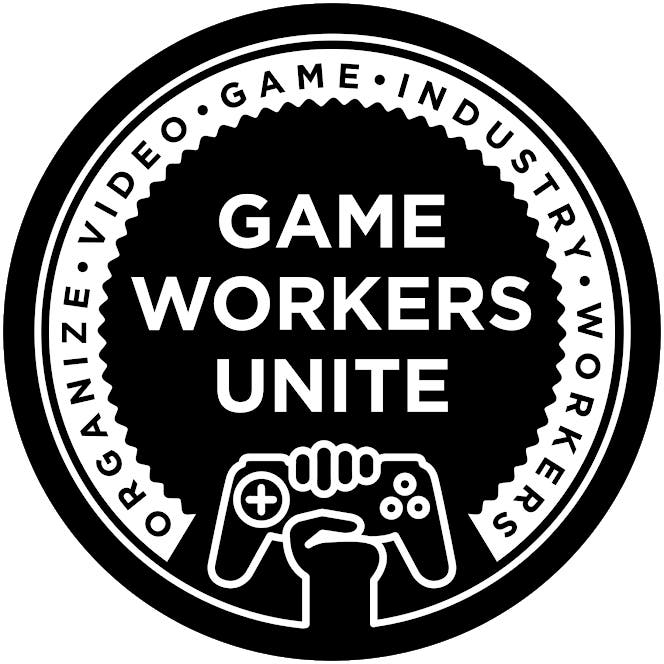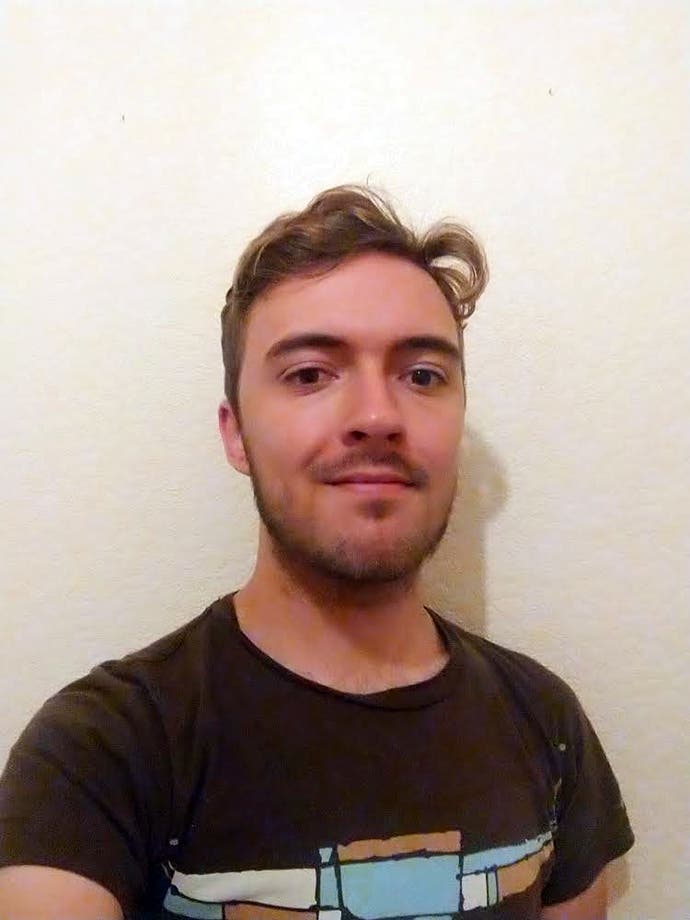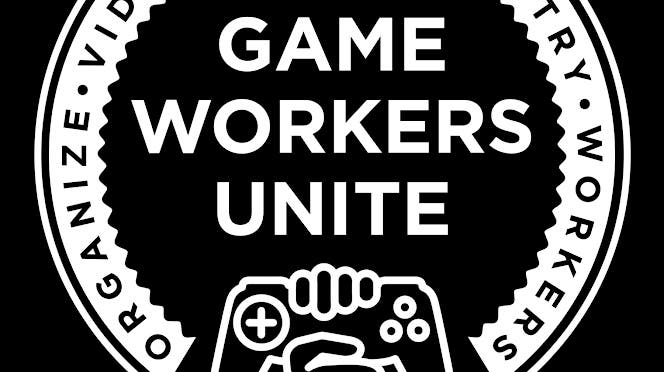The games industry needs unions - and these are the people trying to make it happen in the UK
Meet the activists behind Game Workers Unite UK.
Why unionise the games industry? There are quite a few reasons, as it turns out. One is to combat the mass laying-off of studio employees after projects are completed or don't meet expectations. Only last week we saw an instance of this happening in the UK, with Codemasters "decapitating" much of the team that developed OnRush, including game director Paul "Rushy" Rustchynsky. When asked for comment, Codemasters insisted that the action was "normal course of business."
Enter Game Workers Unite, who sprung up in March. They were partly a response to a GDC panel on the pros and cons of industry unionising, moderated by IGDA director Jen MacLean, who had previously expressed anti-union sentiments. It quickly expanded beyond that front, however, with hundreds of people joining the organisation's Discord server to print flyers and make connections. Even Night in the Woods artist Scott Benson lent aid, designing the now iconic logo.

I wanted to find out more, so I reached out to the people spearheading the UK chapter of Game Workers Unite. As is to be expected of all good labour movements, we chose to meet in a pub - the Lamb & Flag in Covent Garden. Just shy of rush hour, and all the busier for it, I stood with a pint of cider in hand and asked them about what it's been like trying to form the UK's first games industry union. One of them laughs nervously. "To put it succinctly, it's been a very scary learning experience."
For many, it felt long overdue. "It felt like we were all just waiting for it to happen," Declan Peach told me, his denim jacket brandishing a GWU badge and an enamel pin for the Independent Workers of Great Britain. He's the chief organiser and founder of the Game Workers Unite UK branch, a live ops game designer for a mobile MMO, and the one that laughed nervously. "As soon as I saw this was a thing that was happening at GDC, I immediately jumped on it and I immediately starting joining in."
"Imagine Fortnite players saying, 'Yeah, unions are cool,' that would be fantastic"
Stood beside him were Dr Jamie Woodcock, a researcher at the University of Oxford that specialises in worker organisation, and Marijam Didžgalvytė, formerly of Novara Media and now the producer of Left Left Up, a video series that examines the intersection of video games and labour rights. "It only made sense that now, us media types and academics and researchers are getting involved instead of the game developers that would perhaps be afraid to get involved straight away," Marijam said. "I think it's time for us to do the hard graft."
That hard graft? Unionising the games industry on an international scale. The UK branch is already getting to work trying to make it happen here. "The primary goal in the short term is we want to get union-recognized status," Declan said. "Then, we'd be able to do case work for people as their proper representative on a legal basis." Marijam added, "I think it's worth stressing that ... it's happening, we're launching and we already have a union in mind."
As well as legal representation, the trio want to employ a sort of certification system, one that could be given to games developed by studios with healthy labour practices. Jamie explained that "if you could imagine having a stamp on a game that says, 'This is [made by unionised workers],' it popularises the notion that unions are a good thing." There are already a few studios that Game Workers Unite are in contact with who are happy to go ahead with the move.
But this 'GWU Approved' stamp wouldn't only build an association between good games and unionised studios. "It introduces the idea of trade unionism to a whole new generation of people," said Marijam. "Basically, imagine Fortnite players saying, 'Yeah, unions are cool,' that would be fantastic." Jamie added, "Who knows, maybe someone playing a game says, 'I should have a union where I work.' The idea gets out."
"It felt like we were all just waiting for it to happen"
Game development isn't a blue collar job, and to many it's considered quite middle class, so some might suggest that unions aren't the solution. "I would argue that role has changed," Marijam argued. "we see a lot more full-time contracts being changed into freelance contracts, we're seeing outsourcing to the global south of all sorts of development jobs, we're seeing speculative labour being introduced. It's a complete curb and a change of workers rights, so I think if we don't put our foot down right now as game workers, then we will see a complete disappearance of our workers rights."
At the moment, video games and unions don't exactly go hand-in-hand, a problem shared to a degree by the tech industry en masse. "The problem with the game industry is there's so many people vying to get into it, and so employers are like, 'Oh this is your dream to work in this industry,'" said Declan. "'Why do you care about doing overtime? And being paid for it? You want to do this! This is fun, isn't it?'" This culture of employees being guilt-tripped into feeling privileged and lucky to have their jobs is one factor in why unionising has been so difficult.
"There's actually a thing in the credits of some Triple-A games ... I've seen them put 'Number of takeaways' done during development? How many times they've missed tea or whatever? And they're proud of it! They're proud of people missing being with their families because they're so dedicated. That's not... good!"

Jamie provided insight into another likely reason behind just why it's been so challenging to get games industry employees in unions: fear. "There's a company in the US called Lanitex, which is a tech company," he explained. "A group of workers decided to organize there, and they used the company Slack. The company found out about it and fired every single worker [involved] and outsourced all of their jobs to somewhere else. So these things are a real concern."
"Normal people have the power to shape their future and to shape society"
It's fearmongering and union-busting like this that has been the biggest hurdle of Game Workers Unite UK. But despite it all, many industry employees are "starting to put their head above the parapet," as Declan and Jamie told me. Ahead of the official launch in autumn and the first official meeting on the 11th of August, the UK chapter already has a wealth of support online.
This popularity will only grow over time, especially as the trio have a number of different ideas for raising awareness. "Perhaps it would be good to talk to GI.biz, Develop or MCV about a nomination chosen by Game Workers Unite," said Marijam. "'In the latest album launch of Boy Better Know, they had a video game section in the O2 Arena ... today's political artists understand that gaming is a big part of that. So we should be connecting all these dots and introducing workers rights as part of a cultural landscape, a lifestyle if you will."
A worker's movement is nothing without solidarity - collaborating and cooperating with other trade unions and labour movements to enact change - because after all, we're all in it together, or as Marijam puts it, all "subject to being workers in the system!" Declan told me about the connections that he and the others have been establishing. "I had a meeting with Equity, the performers union ... we have very similar goals in mind and we're going to probably be organising events together.
"Same with the Writers Guild of Great Britain, I've had meetings with them and they've actually provided us with a lot of support in terms of how to set up ourselves as a union and how to do financing and merchandising." Declan also told me that they've even been in touch with Unite, the UK's largest general trade union, so despite Game Workers Unite existing only for a few months now, they're already in a place where they're having discussions with some of the biggest players out there.

Before we all had to go our own respective ways, I asked the three what games industry unionisation meant to each of them. Jamie said that he believes "normal people have the power to shape their future and to shape society". Marijam said this was a chance to dispel the myth that women and minorities were to blame for the poor working conditions in people's lives, and this was "a step of establishing that in a very true way", at least in the games industry.
Declan's motivation really stuck out to me as something quite important to express, especially with all the fear and the misinformation surrounding what unions actually stand for. "It means for the rest of my career, and the rest of all my friends' careers, having actually good working environments and good pay, and for-certain future prospects, which is what we all really want to be able to have when we're doing the things we love."

